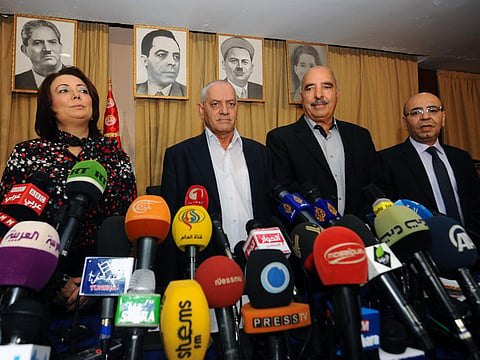A salute to Bourgiba
Extremists can be deterred from politicising religion if people from different faiths are treated equally

On October 9, 2015, The Norwegian Nobel committee awarded the Tunisian National Dialogue Quartet — a coalition of unionists, employers, lawyers and human rights activists — the Nobel Peace Prize. The quartet was awarded the highest of the six Nobel awards for its efforts to successfully transition Tunisia into a democracy.
In the wake of the Arab Spring, Tunisia is the only country with a bright prospect. Neighbouring Libya sank into outrageous tribal strife, following the fall of the brutal dictator, Muammar Gaddafi. In Syria, what started as a peaceful quest for freedom and democracy ended up in a bloody sectarian conflict and a tragic humanitarian crisis. The sectarian conflict did not spare countries like Iraq and Yemen. Looking a gloomy fate of the region the only glimpse of hope is Tunisia.
What it makes it different from other countries such as Egypt and Libya , is the fact that Tunisia has a civil society that contributed to peaceful conflict resolution. This is why following the victory of Islamist party, Al Nahda in the election the country did not go into armed conflict similarly to neighbouring Algeria. In the 1990s Algeria witnessed a decade of murderous strife between the Islamists and the army that drained the country. When the Islamists won the election in Tunisia, civil society organised itself and defeated them democratically in the following election.
The country had a tradition of civil society because Habib Bourgiba, as the first President of Tunisia, had allowed it to flourish. A lawyer by profession, Bourgiba was a progressive visionary leader. He emancipated women, modernised the laws, revamped cultural practices, respected civil rights and obligations and most importantly invested heavily in education.
Despite the fact that Tunisia has very little resources, he dedicated the major part of his budget to education and youth development. Even poor families in rural areas could send their children to schools. He knew that ignorance is the main cause of hatred, and hatred is what allows extremists to infiltrate and destroy societies. This is why the progressive education is the protection against extremism; an education that promotes accepting the other, that promotes openness and that lays the foundation for a civil society. Bourgiba focused on social development more than he focused on military power or economic growth because he knew that education is the most important asset for the sustainable development of a nation.
Today Tunisia teaches us an important lesson. A sustainable growth cannot be achieved unless we have a civil society and unless we have education, and the two go hand in hand. Instead of using fear and repression like other dictators he used incentives and brought the different factions into the government: workers union, association of industries, scout organisations, youth organisation, and women organisations. Instead of becoming the sole patron of politics like his fellow dictators, he became a power breaker among the different factions. He accepted contest and protest as he saw in them a mechanism for adjustment in the power structure. The vibrancy of Tunisia civil society was a result of a pragmatic choice by Bourgiba who saw in civil society a source of power instead of a threat. Despite the fact that old age rendered the Tunisian president eccentric and whimsical and the last years of his rule were characterised by economic stagnation and clientelism , no one can argue that Bourgiba is the one who prepared the people for democracy.
Though as a figure, he is unpopular among many in the Arab for statements or acts he had made, such as drinking water publicly in Ramadan or asking a woman to remove her niqab, or even criticising Egyptian president Jamal Abdul Nasser for the way he handled the issue of Palestine, But Tunisia today proves he was a true statesman. His critics failed to see the larger picture: A visionary leader who took Tunisia into modernity. Following the Arab Spring, Tunisia today has a democracy and enjoys relative stability, except for the terrorist attack on tourists in June this year.
Today, the Arab World needs to follow the footsteps of Bourgiba. Looking at the gloomy state of our beloved Arab world torn by sectarianism, our only salvation is through education and through establishing a civic order. Having democracy without having the framework to operate it leads to chaos. The framework for democracy is the civil society. The Arab Spring shows us how countries that were for decades under dictatorial rule and lacked organised civil societies could not embrace democracy peacefully.
A civil society and a civic state can also solve the problem of sectarianism that is destroying our societies. When different people from different faiths and ethnicities are treated equally under civic state, extremists will be deterred from politicising religion and from using the system’s unfairness to mobilise people. If the constitution adopts a civic perspective then no sect will be treated in a preferential manner. A civil society will allow nationalism to transcend the sectarian identity.
Dania Khatib is an expert on Arab-American relations. She has a PhD from the University on Exeter on Arab lobbying in the US.



